By: Ned Fichy
George R. R. Martin’s fantasy saga, A Song of Ice and Fire, has drawn as much interest as any literary project of recent memory. For good reason. Mr. Martin is a powerful writer and he tells compelling tales. He is good enough at what he does – and what he does is itself a rare enough thing – that it seems appropriate to call him an artist, and to consider his works as art rather than just entertainment.
For artists, the stakes are higher, and in Martin’s masterpiece they are high indeed. His project is to recast the world of fantasy in a realistic manner. And, indeed, the realism of his saga is one of its most compelling features.
To accomplish this transformation in A Song of Ice and Fire,
Martin breaks with a number of prominent features of traditional fantasy, especially the centrality of magic and the clarity of moral outcomes. Magic lives on the margins of his world—beyond the Wall and in the exotic Essos—and many characters doubt its reality altogether, while (famously) bad things happen to good people in his world.
By writing against trope, Martin challenges both the possibility of morality and the possibility of magic. The challenge to morality is interesting but hardly novel – like many authors, Martin seeks to craft a world that is morally ambiguous. He does this most obviously by bringing good guys to bad ends, but also by emphasizing power politics over the nobler or more idealistic politics typically found in fantasy worlds. The challenge to the idea of magic is less explicit. There is, after all, magic in the world of A Song of Ice and Fire. But, by pushing it to the background, Martin emphasizes realism in the metaphysics as well as the politics of his world.
The moral and magical elements of the story are deeply intertwined. As the reader makes way through the first book in the series, Game of Thrones, they find an invented world in which magic is mostly at the perimeter and politics are the fulcrum. The politics are engrossing, a complex and vicious battle for power (the titular, “Game of Thrones”) inspired by the Wars of the Roses in fifteenth century England, and the far-off magic is tantalizingly dangerous, threatening the Seven Kingdoms in a terrible but unrecognized way.
This offers some fair imitation of our own world, where the idea of magic has been killed, the convictions of its lingering adherents labelled superstitions, and any traces of it banished to the uttermost fringes of considered opinion. Yet even in this demolished form, it is treated as an enemy, perhaps especially because it is easy to fight against something that is already in the ground. And perhaps also for bad conscience—what is conscience itself other than a kind of magic?—when people fear that they have had a hand in killing something they had grown to dislike but that they didn’t really understand in the first place. [1]
The presence of magic is often so suppressed that it sometimes seems like Martin is uncomfortable having it there at all. Perhaps a discomfort with magic led to his project of recasting the world of fantasy in a realistic manner. But regardless of speculation about authorial intent, the project is strange. Why bring realism to fantasy literature, of all places? Or, to put it differently, why create a world of fantasy, complete with magic, yet keep the magical elements so limited and marginalized? Why not give magic freer rein?
Fantasy as a literary genre can broadly be described as an attempt to make a place where magic can still exist, because people can no longer believe that there is magic in this world. This has been so from Dunsany and Tolkien onward. The genre has been the last bastion of belief in magic, or, more accurately, the last bastion of wishing for the enduring capacity to hold that belief. It has been a place where the limits of human understanding can still be interpreted as concealing from us – or, on the other side of the coin, revealing more than they actually do – forces and powers that can transfigure the mundane world and make it beautiful.
There have always been limits to human understanding. There is nothing new in that. What has changed, though, is our attitude toward those limits. What cannot be known is today considered only as what is not known yet. Although there is still a line between what is known and what is unknown, whatever is on the far side of that line is, we believe, knowable in principle, and therefore susceptible to future knowledge in its particulars.
What lies beyond our understanding is not magic, we believe, nor, for that matter, is it any of the objects of faith. The unknown is but further science waiting to happen, or pseudo-science as the case may be, for we will largely forego here the matter of the peculiar faith upon which this conviction itself is based.
The strangeness of this change in attitude is manifest, for the older view was not necessarily a religious one. A philosopher like Socrates himself knew that he could not know what lay on the other side of the line, but his faith was not compelled by that knowledge. Quite to the contrary. The limits of knowledge do not logically necessitate faith anymore than they establish the integrity of scientism.
Still, not knowing means not knowing. It means that, while there are no ways in such a case to calculate likelihoods, the probability that magic is at play in something mysterious like cellular division and replication, or, to be less crude, in the very knowability of differences in kind between experienced things, is at least as great or more so than the probability that it is some rationally comprehensible process. It is the reasonable position that is intolerable to today’s version of the scientific mind. And it is a form of this scientism that prevails in A Song of Ice and Fire.
What redeems the scientism, to an extent, is the political realism. The author of A Song of Ice and Fire does not banish the magical by recourse to natural pseudo-science itself. He does it by placing the human before the superhuman.
This is insightful on Martin’s part, for although he reduces the scope of human longing through the diminishment of magic, he nonetheless situates human longing in its natural place, at the center of the action.
Indeed, it is political realism, the longing for power—although, notably, in Martin’s world, it is not longing for power bereft of glory and honor—that presses outward against the supernatural in the world of A Song of Ice and Fire. And it is, therefore, morality (or, rather, a pronounced skepticism regarding morality) that is the engine generating that pressure.
Martin appears very conscious of the moral angle. Even in his “leaked” pitch-letter for the series, he wrote: “Some of the fatalities will include sympathetic viewpoint characters. I want the reader to feel that no one is ever completely safe, not even the characters who seem to be the heroes.” Martin succeeds in much of this. There is an ever-present sense of threat in his story. But it would go too far to say that this extends entirely to those among the characters that “seem” to be heroes.
By having so many protagonists, so very many characters in total in the story, Martin sets a stage upon which he can sacrifice more than a few in order to make the good guys seem like the odds are indifferent with respect to them. It still does not seem like they could possibly just lose at the end of it all or that all of them might be extinguished along the way there.
Martin also succeeds in making sympathetic figures out of bad people. In this, as in other things, he proves his excellence as a writer. Even when it comes to incest, for example, Martin easily evokes the reader’s compassion. No matter the perversity of what Jaime Lannister and Cersei Lannister do with one another, one does not want to see them shamed or undone for it. Abominable as their love may be, the reader too is consoled by the consolation that the characters themselves find, by two flawed but beautiful people loving each other.
This sympathy is not universally extended to the bad guys, however, not in effect, nor by design. The product of the incestuous union, Joffrey, is an entirely unsympathetic figure. He is so despite the fact that he is a mere child and one who has had no choice in own his rottenness.
Joffrey is presented as a bad seed and one not to be excused for his genetics. That the author cannot or will not in any way exonerate Joffrey on the grounds of ignorance is a clear sign that Martin’s world is not a morally indifferent one and that it is, in fact, a very moral one.
The surest excuse for evil is ignorance – the everlasting challenge to all justice and morality – but it is not considered in Joffrey’s case. He is wicked from tip to toe and his cruel fate is satisfying, regardless of his ignorance to virtue. [2]
In so many ways, but especially in plot twists (e.g. the execution of Eddard Stark and the infamous “Red Wedding”), Martin seeks to fashion an amoral universe, or one with a markedly pronounced and hard-headed realism for its spirit. But amorality requires moral feeling to be shocked by it, or it is not compelling. Therefore, moral feeling must be awakened, amplified and directed.
In this last regard, Martin is again effective, although it appears to be somewhat despite himself and often in a ham-fisted manner. We, the readers, know well who the good guys and bad guys are in the story. That is, if anything, painfully obvious.
One cannot confuse Joffrey with Bran Stark, nor can one confuse the relative virtues and vices of the larger Houses of which they are sons. And when Eddard Stark is executed at the end of the first book, the vile injustice of it sears into the heart of the reader. Tragedy might be made when good guys die, but tragedy is not at all amoral.
George R.R. Martin has done more to clarify moral feeling with his novels than he has to confuse it. This rather self-defeating outcome to the challenge that his work poses to the existence of morality leads to a strange irony. That is – the most profound result of George R. R. Martin’s attempt to introduce realism into the world of fantasy is that magic is one step further removed from the people who have gone looking for it. Lovers of the fantastic are thus even more estranged from their actual longings, not to say distracted from the fact that those longings have been left unsatisfied. [3]
In the wake of Martin’s novels, those which so far comprise the Song of Ice and Fire saga, the cause of magic has been left even deader than it was before. No funeral is required for second deaths or third ones, but perhaps a resurrection? If so, then only by magic.
[1] It would be interesting to know whether or not George R. R. Martin had thought of this when he designed his world. The magic that threatens the Seven Kingdoms from beyond its northern border is called, “The Others”, a race of supernatural creatures, long dormant, but now about to awake and destroy all human life. If Martin planned it as it stands, there is delicious fun here: what is “other” to the cultures of Westeros is apocalyptic in its destructive intent. There is nothing in it to reach out to or with which to empathize. This stark and mocking critique of our own sensibilities is softened and, perhaps in Martin’s view, not a critique at all since “The Others” are not human. Perhaps only the inhuman can evoke our unmitigated opposition and perhaps that is the only place where magic can be allowed to prosper. But the language alone makes it fun; it is almost a parody of Levinas and other post-Christian moralists. What if the human “other” from beyond our culture was anything like the inhuman “Other” from beyond the wall? And how would a person ever know until it was too late?
[2] There is more depth to the description of the food at the banquet where he dies than there is to his character’s psychology. Which is in complete keeping with the tone of the books. The feasts of the Seven Kingdoms are described in bizarre detail, but insights into the characters’ psychology are few and far between. It is the “point-of-view” device itself that permits such avoidance of psychological detail; by dropping the reader into the consciousness of a given character, Martin relieves himself of the burden of providing genuine psychological insight. Little changes from one point of view to another, except for the name to which the view is attributed. There is frequently no discernible change in the mode or manner of reflection amongst the characters. It is true that a far greater writer – say, Joyce or Proust or Kafka – could infuse a character’s own “point-of-view” with tremendous insight into the psychology of that character, regardless of the character’s own degree of self-knowledge. But that is not Martin. Heavy on food, light on psychology.
[3] It is also true, as Matthew Continetti wrote in his fine review of Martin’s epic for the Claremont Review of Books, that only the future will tell how successfully Martin can bring the largest political theme of his work – the grand contest between emancipator and the old regime – to its conclusion. It should be noted, however, that in Martin’s world, the emancipator has a profound and rightful claim to being the representative of an even older order than the prevailing one. Not much of a new dawn would accompany the return of Targaryen rule to Westeros. And Daenerys Targaryen, the “Mother of Dragons”, is herself no classical liberal, nor a democrat in any real sense. There are moral feelings involved in her liberation of slaves, but there are far more pragmatic ones to be found, as she herself sees that her conquests are brought success by turning the many against the few and then furthered still as former slaves are made into slave soldiers. Daenerys is an imperialist, she is more of the mold of Xenophon’s Cyrus than that of Abraham Lincoln or any American or French revolutionary.




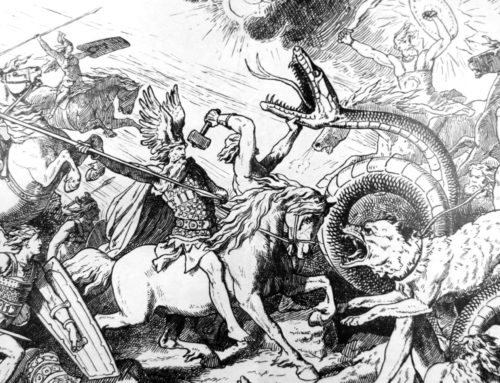
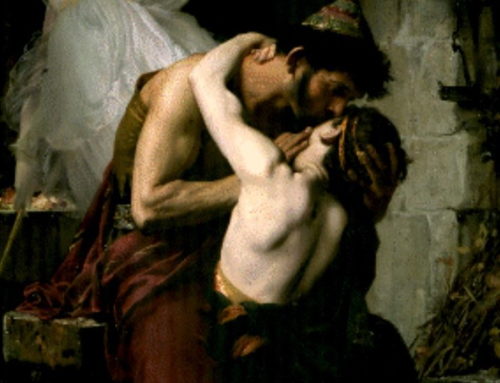
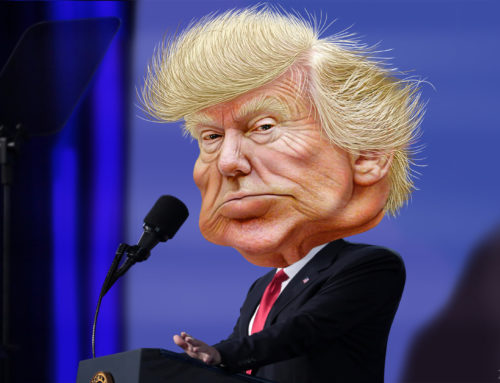
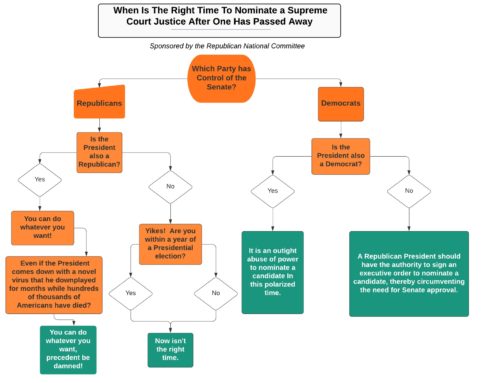
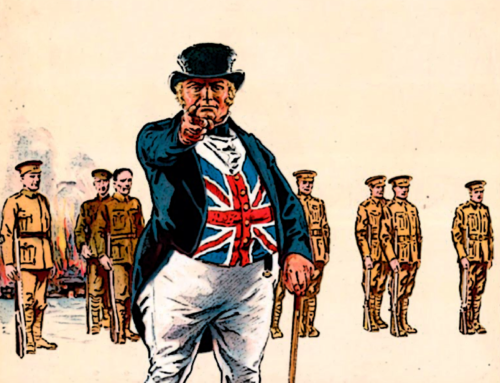
The author of this article seems to have only a superficial understanding of ASoIaF, as well as a complete lack of awareness of trends in fantasy over the las ten to twenty years. Hyberbolic article is hyperbolic.
Hi M Todd,
Thanks for the comment. Could you say how my understanding of ASOIAF is superficial? Could you also mention which trends in fantasy over the last ten to twenty years you have in mind? I’d appreciate it.
Ned
Interesting, I have always thought that the opposite is true. Martin is revitalizing the whole concept of magic by shedding some of the more burdensome clichés. By marginalizing magic he restores meaning and a sense of mystery. Magic is now something eldritch and invaluable, no longer simply a MacGuffin or a consumable good.
You could even say he is returning to the roots of fantasy, in as much as it is possible to do in a meaningful way, without turning it into pastiche. You don’t see Gandalf spamming magic missiles, either. Less is more.
I think you make an excellent point, Trevor.
There is an extent to which magic regains some of it’s former “mystery” when it is marginalized. On the other hand, when the thing in question (magic) is a mysterious thing by definition, I believe that there is a problem when it needs to be marginalized in order for it’s true character to be appreciated.
Is magic any less mysterious when it occurs at the center of a fantasy novel? Or are we as readers somehow less ready than we have been to accept a mysterious thing in such plain view?
I also agree with you that in The Lord of the Rings, for example, magic isn’t happening every second or on every page. Gandalf isnt “spamming magic missiles”, as you put it!
Still, LOTR strikes me as magical to its very core – it is the tale of a magical little creature (a hobbit) as he goes on a quest to destroy a magical ring in order to thwart the designs of a dark lord of magic (who is practically immortal). The politics of Middle Earth are relatively marginal to the main story and the moral outcomes are very clear.
In A Song of Ice and Fire, it is magic that is relatively marginal and politics (a struggle to rule) that are central. And, of course, moral outcomes are often ambiguous at best.
Ned
“No more magic,” cried Georgie Martin,
“Let’s make our fantasy true to life –
The knights will whore and eat and be fartin’,
Instead of having eternity to wife”.
I enjoyed this article but I think it missed (or avoided) one important magical theme that runs through every culture group in A Song of Ice & Fire: religions. The politics & magical prophesies that motivate much of the action in this story are connected to the competing religions in GRR Martin’s world. Martin allows his readers to discover for themselves how the religions of Essos & Westeros, like those of our own world, have manipulated characters, influenced events & altered the history of this world without challenging a reader’s own personal, supernatural beliefs. The questions isn’t how much magic makes a good story, but whether humans can ever accept that magic simply doesn’t exist.